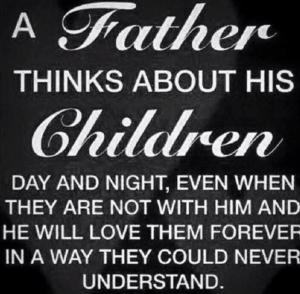Everyone is experiencing different challenges as a result od Covid-19. Some peoples biggest struggle is with the health issues associated with the virus itself, for others it may be the isolation or social distancing rules. And many people have lost out on important events that had to be rescheduled or permanently cancelled. And a large percentage of people are experiencing severe financial challenges with their businesses or… at a personal level. But the purpose of this communication is not to restate the negative but instead to share some positive thoughts in this challenging time.
Hope. For many of us, this is one of the biggest challenges of our lives. No matter what we may have heard, this is not the end of the world and we will get through it. Challenges are never easy, but they do have a way of flushing out opportunities for those willing to search for them. It may be hard to see a better picture for our future, but I believe that the best is yet to come.
Encouragement. Leaders are created for times like these, and you are a leader. You may be the leader in a business that you own or lead in another company, if so, people need you right now. Not just to make good business decisions, but to help people deal with their own thoughts, perceptions, and challenges. You may be the leader in an organization, church, or school and this is an amazing opportunity to model great servant leadership to others in your organization, especially upcoming future leaders. Or you may be a leader in your family, which in my opinion, may be the biggest leadership responsibility we will ever have. And now as families are forced to stay home together, wonderful things can happen, despite what is happening outside that home.
Advice. There is a seemingly endless supply of negative news bombarding our eyes and ears daily. We must be careful of how we lead ourselves during this time. It is important and valuable to clearly understand facts that will help us make good choices, yet not become so overwhelmed by the negative, such that we are unable to see all the positive. It may take some conscious effort to identify them, but there are some good things happening. People are becoming more aware of those things that are essential, or really important in their lives, and we as leaders can help people be more aware of those positive things, which will not only improve current circumstances, but have the potential to positively rewrite the future of a business, organization, family, or person.
Love. This does not need to be a time saturated with fear, frustration, anger, or regret, it can be a rewarding time of giving love, value, and respect. A chance to not only recognize those things, or those people, who are precious to us, but to also make sure that they know it. It can be a time remembered for helping families became closer or stronger. Or the rewards of a team of people who pull together to not only show love, value, and respect for each other, but to become opportunity hunters, and make the best of whatever this pandemic may be forcing upon them. Every person has two lists. One includes all those things we do not have or are unthankful for. The other contains those things that we have or are thankful for. It is up to us which list we choose to focus on.
Thousands of lives are attached to each one of us, and this is a tremendous opportunity to become more aware of those precious relationships and to not only help others get through this time but build a better future because of it.
I Believe in You,
Hank Wagner






